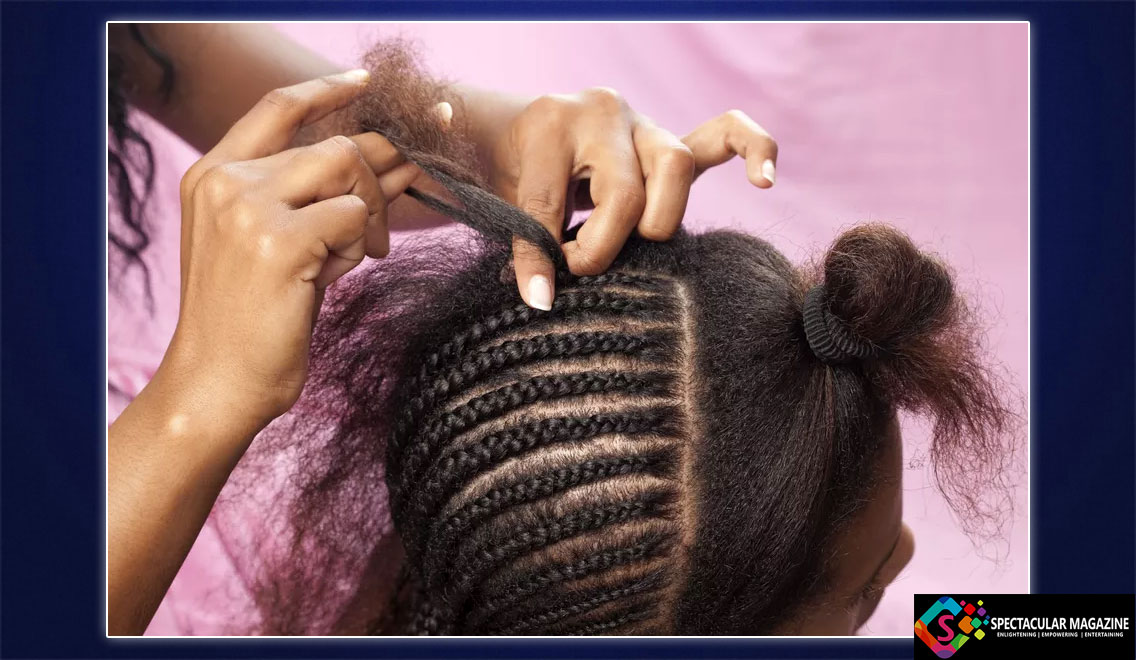[#FridayPoll] Hair Braiders Don’t Use Chemicals, So Should They Be Required To Be Licensed?
What do you think? Should Hair Braiders be required to be licensed? Comment below.
Someone who braids someone’s hair with their hands and some coconut oil needs almost nine times the training of an EMT? That doesn’t make sense.
When Hortense Fassu decided to open a hair-braiding shop in New Jersey three years ago, she dropped by various city and state offices to make sure she was doing everything by the book.
“I went to everyone to ask what I’m supposed to do,” she told Racked. “I asked if I had everything I needed.”

After getting the all-clear, Fassu officially opened her shop, hiring two other women as braiders as well. But her plans came to a halt when inspectors made a surprise visit, demanding that Fassu and her workers present cosmetology licenses. All of them lacked these credentials, a requirement New Jersey may waive for braiders this year. Today, 25 states don’t require braiders to have cosmetology licenses. And the movement to do away with such licenses in the states that haven’t waived the requirement is ongoing.
While the typical hairdresser washes, cuts, and uses styling tools on hair as well as chemicals, braiders perform none of these tasks.
“I’m not using anything besides just my comb and my hands”
“I’m not using anything besides just my comb and my hands,” Fassu explained.
Yet for braiding hair without a license in New Jersey, she was issued a $1,150 fine, and her employees received $300 fines. Had Fassu known she needed a cosmetology license to braid hair, she never would’ve opened the shop, she said. The 44-year-old native of Cameroon said she has no interest in spending 1,200 hours in cosmetology school for an estimated $17,000 to obtain a skill most cosmetology schools typically don’t cover.
“Nobody knows how to braid hair there,” she says. “You want to teach me something you don’t even know? They don’t do braids there. Growing up in Africa, it’s kind of the culture. Everybody does braids.”
The fact that hair braiding is an essential part of African and African-American culture that dates back millennia is the main reason there’s a fight to waive licensure requirements for braiders. In New Jersey, Assembly member Angela McKnight is one of the leaders of this fight.
“The reason this bill is important is because it’s part of African culture,” she said. “They are born with this gift. They’re not taught how to braid people’s hair. I’m African-American. My mother didn’t teach me how to braid hair. I watched and I learned. We have this culture that’s creative, and when braiders do hair, it’s not just the regular Jane Doe. They braid the hair of lawyers, politicians, prosecutors, CEOs, and make them look beautiful.”
McKnight said requiring licenses for braiders prevents these women, many of whom provide for family members in the US and abroad, from being self-sufficient and flourishing as entrepreneurs. She added that the licensure requirements have driven many braiders underground, and allowing them to open shops would drive more tax funds into the state economy.
New Jersey is not the only state where the conflict over licensure requirements for braiders is making headlines. In March, a number of news outlets reported that Tennessee had fined braiders $100,000 in fines for braiding without cosmetology licenses. A bill to waive the requirement died in the Tennessee House, however. In Missouri, braiders had the opposite fate. Missouri Gov. Eric Greitens signed a bill to loosen requirements for braiders before he leaves office on June 1. The move came after a four-year legal battle between advocacy group the Institute for Justice and the Missouri Board of Cosmetology and Barber Examiners over the issue.
For nearly 30 years, the Institute for Justice has fought to get states to reconsider licensure requirements for braiders. Brooke Fallon, IJ’s assistant director of activism, said much of the opposition to changing these laws comes from cosmetology schools. They see the growth of the natural hair movement as a lucrative business, she said.
“There’s obviously a profit incentive to require as many people as possible to go to cosmetology school,” she said.
But there’s also ignorance about the practice of hair-braiding. Lawmakers unfamiliar with it may not understand why it should be distinguished from other kinds of hairstyling. The fact that half the nation has waived licensure requirements for braiders without catastrophe should sway legislators that the practice doesn’t pose a risk to consumers, Fallon argued.
“Braiding is a totally safe and natural practice,” she said. “It’s very interesting to look at the licensing requirements across different industries. For example, you need 1,200 hours of training to become a cosmetologist. That’s almost nine times the amount of training you need to become an EMT. Someone who braids someone’s hair with their hands and some coconut oil needs almost nine times the training of an EMT? That doesn’t make sense.”
(SOURCE: www.racked.com)

